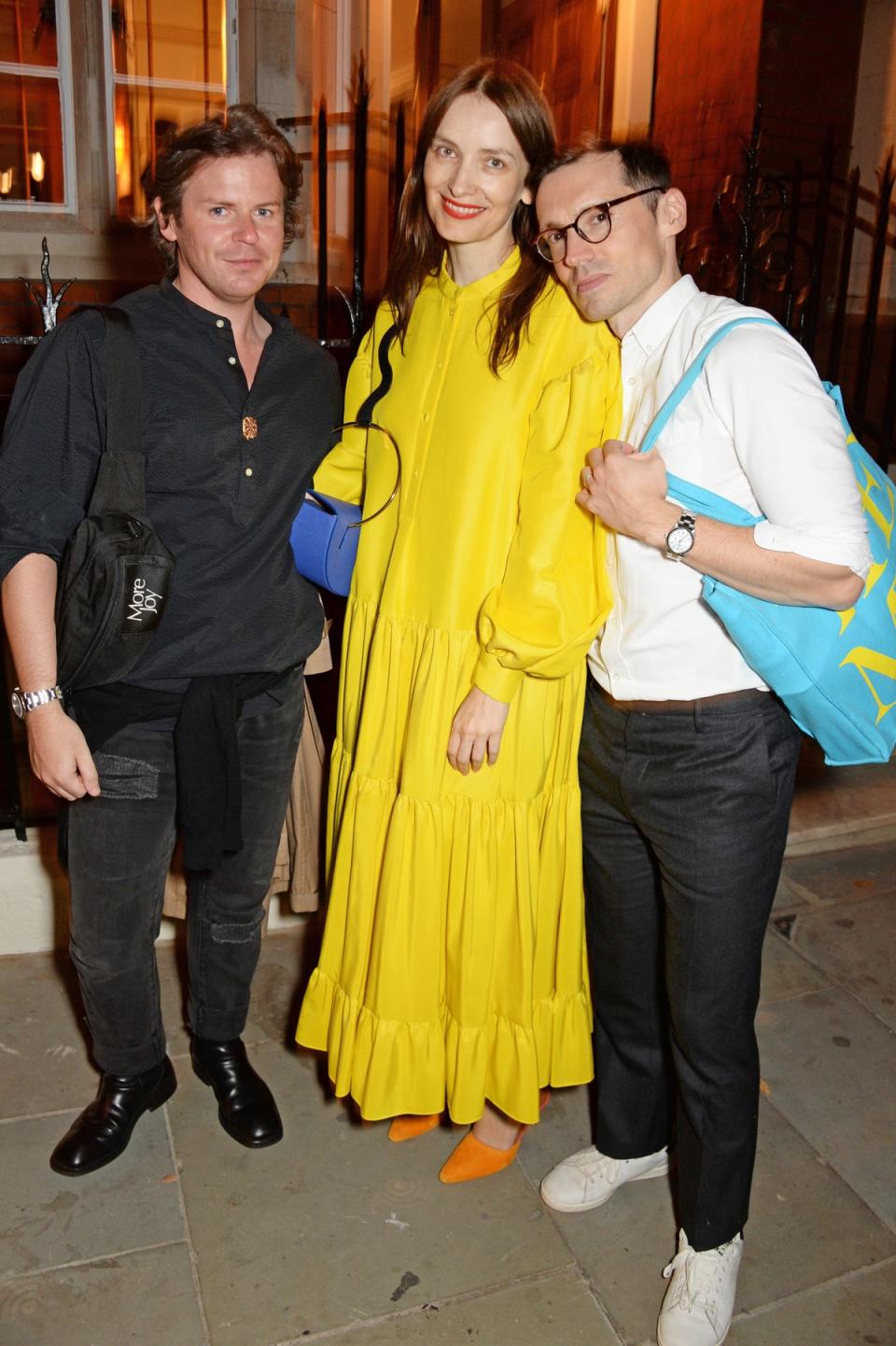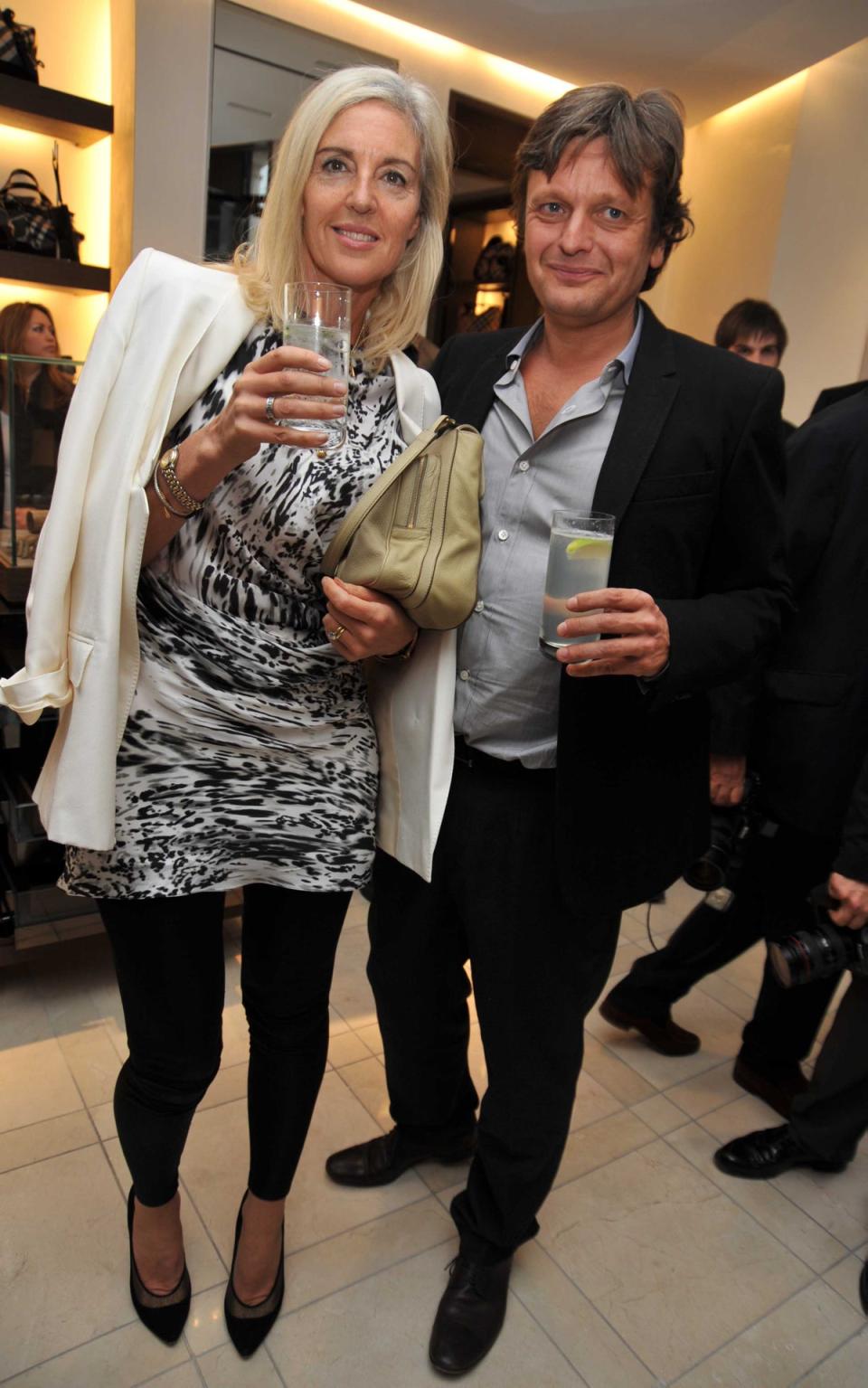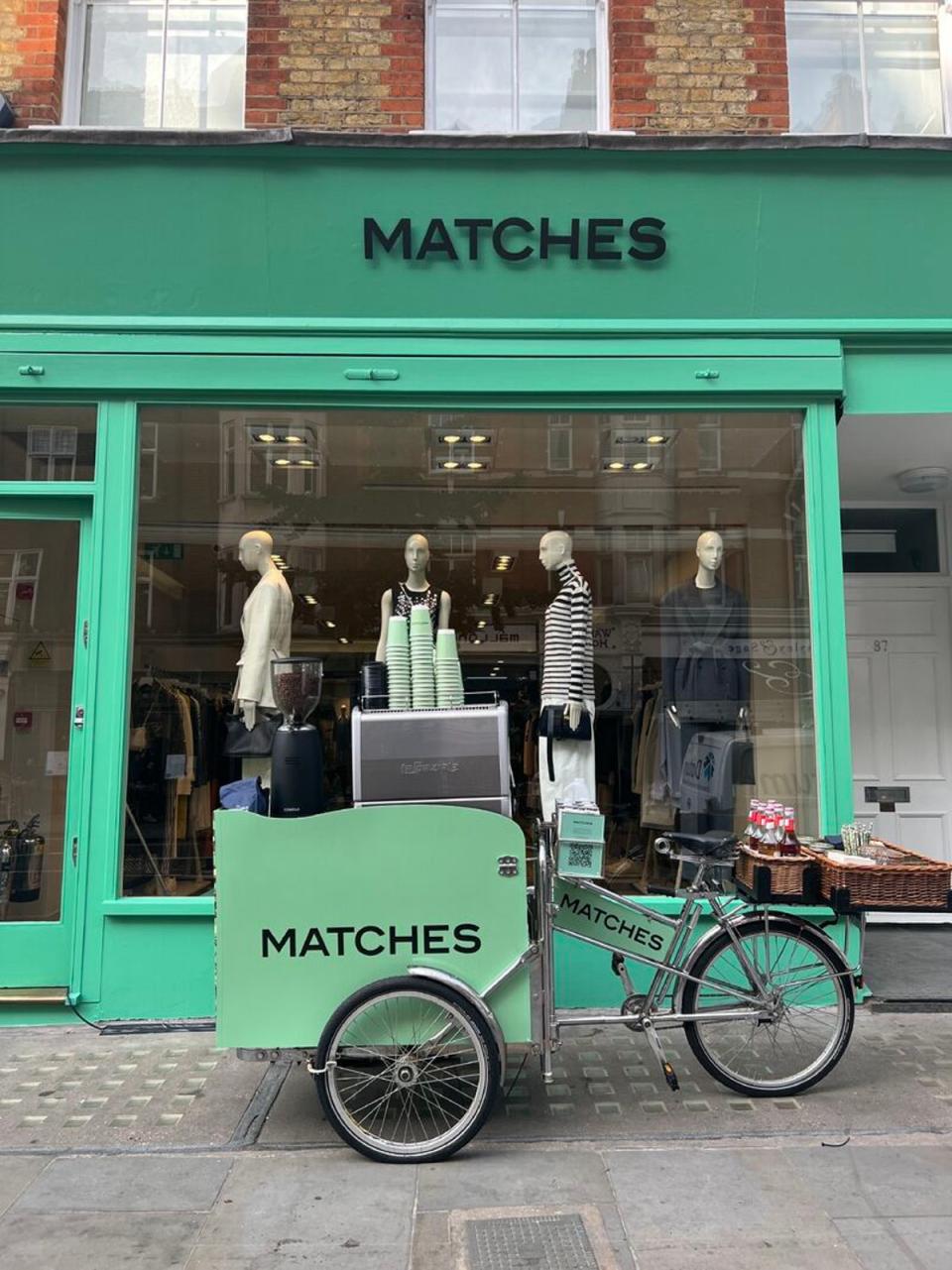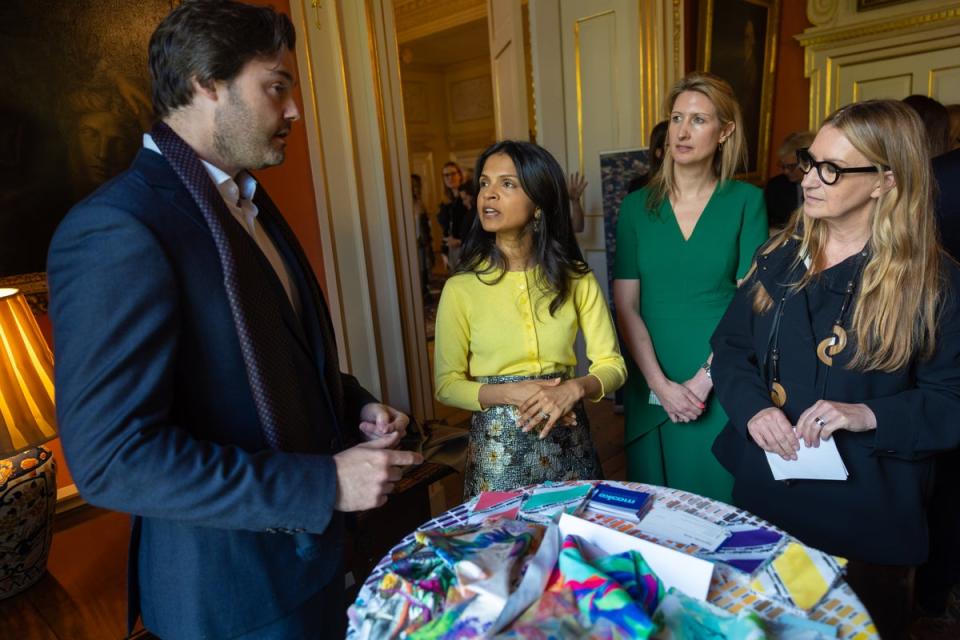How the collapse of Matches has sent the fashion world into frenzied chaos

Walking along a ghostly Mount Street over the weekend was sobering. Roksanda Ilinčić’s beautiful Grade II listed store, which opened to much acclaim in 2014, has recently shuttered and is relocating.
Along the street, Matches’ grand five-storey flagship townhouse at 5 Carlos Place is still open, with a perfunctory notice on the door about the company’s state of administration. Inside a po-faced sales assistant helped a customer waving her phone around asking for the heavy discounts which are available on the retailer’s website. High spenders are being offered up to 40 per cent off online as administrators Teneo scramble to recoup funds. In the Marylebone store, one friend was told by a member of staff to not try to buy anything online.
Few have escaped Mike Ashley’s Frasers Group sale and squander of Matches, which it bought in December for £52 million and put it into administration on March 7. The demise of this once-prized retailer has rippled across the London fashion food chain from buyers and brands to factories, PR agencies, stylists and beyond. The entire glittering ecosystem is under threat and rife with gossip.

Speaking to the Standard, Anya Hindmarch said that “to say this is difficult and unsettling for the industry is an understatement”. The stockist list is a who’s who of luxury, from Alaïa, Balenciaga, Valentino, The Row, Christian Louboutin and Loewe to the London stars, including Hindmarch, Vivienne Westwood, JW Anderson, Victoria Beckham, Erdem, Simone Rocha, Molly Goddard, Emilia Wickstead and Samantha Cameron’s Cefinn. And everyone — from major names to small, homegrown talent — has been caught in the crossfire.
Beckham has reportedly been able to get her stock back, but other labels are still waiting. Most, in the throes of legal negotiations, have declined to comment — concerned that speaking out will scupper their chances of recouping anything back. According to a report published yesterday by Teneo, Matches owes Swedish brand Toteme nearly £1 million; Burberry is owed about £500,000, Anya Hindmarch and Joseph over £ 200,000, and Cefinn and Paul Smith more than £100,000. Frasers Group declined to comment further. Teneo has also been contacted for comment.
Anna Jewsbury, artistic director of jewellery brand Completedworks, which cast Dame Joanna Lumley in its recent fashion week presentation, took it upon herself to find answers. “I drove down to the warehouse on March 8 when we heard the news and managed to speak to the administrators in person as we hadn’t received any direct communication at that point,” she said of the £110,000 she has lost in unpaid invoices.

At Matches itself, 273 were made redundant. Those who remain are largely logistics people keeping the website and stores running, as well as the team behind Matches’ successful in-house label, Raey. At Here East in Stratford, where the retailer retains office and studio space (for shooting product imagery for the website), security appeared on the doors to check staff hadn’t taken any of the luxury stock with them when they lost their jobs. The glossy seventh floor offices at The Shard have closed, the furniture sold off.
It’s a far cry from the carefully nurtured venture opened by Tom and Ruth Chapman in 1987, with stores in Wimbledon Village, Richmond and Notting Hill. The duo were a central part of the British fashion scene and helped to launch and champion the stars of the London Fashion Week schedule alongside super brands such as Prada, Saint Laurent and Gucci.

With the flourishing success of the then re-branded MatchesFashion website launched in 2007, white-hot names were taken on global tours for press events with private clients, introducing fledgling talent to a lucrative international audience. Under the eye of buying director Natalie Kingham it became synonymous with cult buys, exclusives and clever edits, with a cooler edge to Net-a-Porter’s more corporate curation.
Ben Cobb, ES magazine editor and creative director of the Ben Cobb for Tiger of Sweden collection (exclusively stocked at Matches), says, “Matches always felt like it was part of the fashion conversation, a pivotal cog in the industry, rather than just a huge, hungry retailer.” His Tiger collaboration launched in 2022. Luckily, the November collection launch “sold very well on day one so we weren’t hit financially. We were always planning to open it up to other stockists but the sudden demise of Matches obviously expedited this.”
The Chapmans cashed out for a reported £400 million in 2017 to private equity firm Apax Partners. Once they stepped back, the business was subject to the churn of four chief executives and an ever-growing profit loss. With Matches’ appointment of former ASOS head Nick Beighton in 2022, there was an internal feeling that the retailer was shifting away from its natural home of championing small brands, which it began to quietly ditch, picking up more mainstream offers from the likes of Diesel and Ugg. Budgets were slashed and redundancy rounds started. Content teams were shrunk, with project managers brought in to supervise who was left. More recently head office personnel were given timesheets to fill out documenting how they were spending each hour of the working day. Morale, unsurprisingly, was incredibly low.

The British Fashion Council has been liaising with the Department for Culture, Media and Sport and the Department for Business and Trade. In a statement, it said: “Caroline Rush met with Minister Lopez (DCMS), Minister Lord Offord (DBT) and Government officials to discuss the impact of Matches Fashion’s administration on UK fashion designers and the wider supply chain. While stressing that public intervention was unlikely at this stage, ministers have offered to use the convening strength of the UK Government to work with the BFC to facilitate a sector-led commercial response to the issues facing the market. The ministers were keen to understand the complexities of the situation and will be kept appraised of any developments by the BFC.”
Rush is also looking to mitigate the current perilous state of the wholesale market. The BFC last week announced a shift in how designers are appraised for inclusion on the official fashion week schedule. Previously a brand would need to have six wholesale clients to qualify. The new criteria no longer has a minimum wholesale stockist threshold but does require brands to reapply each season to an industry panel which will select brands based on creative merit. In an attempt to jumpstart new business, the Prime Minister’s wife Akshata Murty last week hosted a networking event for British manufacturers at Downing Street, pulled together by Libby Hart of Libby London and Hindmarch (both advisers to the UK Board of Trade).
“One of the reasons we held the Manufacturing Matchmaking event last week was to try to match British brands to British customers to fill some of the manufacturers’ order book holes,” Hindmarch explained. “It makes brands question the safety of wholesale as a channel and makes everyone look closely to ensure there are legally binding clauses in place for any future situations like this. To a certain extent, the writing had been on the wall with slow payments and lots of discounting.” She added: “It has never been more important to hold a very close, direct relationship with your end customer as I think wholesale will be rocky for a while yet.”

But Matches has hardly been alone in dealing with the fall out from the economic downturn. Net-a-Porter is up for sale, Browns — owned by a rescued FarFetch — is struggling, with a stream of senior exits. On Tuesday, the conglomerate Kering — owner of Alexander McQueen, Balenciaga and Yves Saint Laurent — forecast a 40 to 45 per cent drop in operating profit for the first half of the year as sales from Gucci fall. Luxury labels are now in a race to the 0.1 per cent, hiking up prices to appear as exclusive as possible to the only cohort left shopping at this level — the insanely wealthy. The aspirational customer in the middle, laden with the cost-of-living crisis, is no longer snapping up £500 dresses.
Also present at the Downing Street event was Burhan Bilici, founder of Kentish Town factory Sour Grapes. Bilici has worked in garment manufacturing since he started working at his father’s East End tailoring factory aged 15. He set up his own venture 14 years ago, encouraged in part due to the burgeoning London fashion scene. The course of his factory’s trajectory has been in tandem with that of London’s most touted and talented names.
“Our first clients Christopher Kane, Jonathan Saunders, Richard Nicoll, Meadham Kirchhoff, Ralph & Russo, Roland Mouret are no longer here,” he says. “Everyone has come through our factory floor, I’ve seen them go up, and then tumble down. We’re known to do the most complicated pieces, people come to us with things that no one else can make; we also do a lot of fabric manipulation, hand-embroidery.” Pre-Covid, he employed a team of 65. It’s now down to 30.
He survived lockdown by pivoting to mask production; “we made half a million masks to stay afloat, then coming out of the second lockdown we started losing brands. Last year we lost Christopher Kane, and now Matches where we were working directly with Raey. Each time, the hits have got harder.” Bilici had been so busy in the past that he turned down business from Raey twice. When Matches went into administration he was poised to create 2,000 pieces for its June deliveries. “I had to switch the machines off and send everyone home.” He went to other clients to see if they had anything he could fill the booked time with, “but they’ve also been hit by Matches too”. He adds: “The wholesale model does work. It’s worked for decades. The reason why it’s failing is that people keep moving the goalposts. It’s down to badly managed businesses. Decisions made at the very top affect everybody down the line.”

And so now London’s most beloved brands are scrambling to keep their footing in the face of tens of thousands of pounds of lost stock, and thousands more in cancelled orders for the autumn season. Insiders confide that many will struggle to make their payrolls this month, there is at least one celebrity favourite fighting to stay afloat, with conditions across the board described as “very challenging” and redundancies looming. When it comes to ploughing more money into labels haemorrhaging cash, the phrase ‘investor exhaustion’ has been mooted.
Mostly, people are asking what Frasers Group intentions ever were for Matches. Diane Wehrle, founder of Rendle Intelligence and Insights, posits that “Frasers Group acquired Matches to build on the success of its Flannels brand, and further increase its market share in the luxury fashion segment. However, success can come down to timing, and here Fraser’s timing was off”. She adds: “ The sharp slowdown in luxury goods sales globally as economic conditions tightened has been well reported, but Matches was particularly vulnerable due to its appeal to aspirational shoppers, many of whom will have been hit proportionally harder by higher interest rates and inflation.”
Bilici says that the next six months will be critical for his factory, if he can get through that and work with labels for their shows there may be some hope. But who will make that 40th anniversary year London Fashion Week schedule in September remains to be seen.


